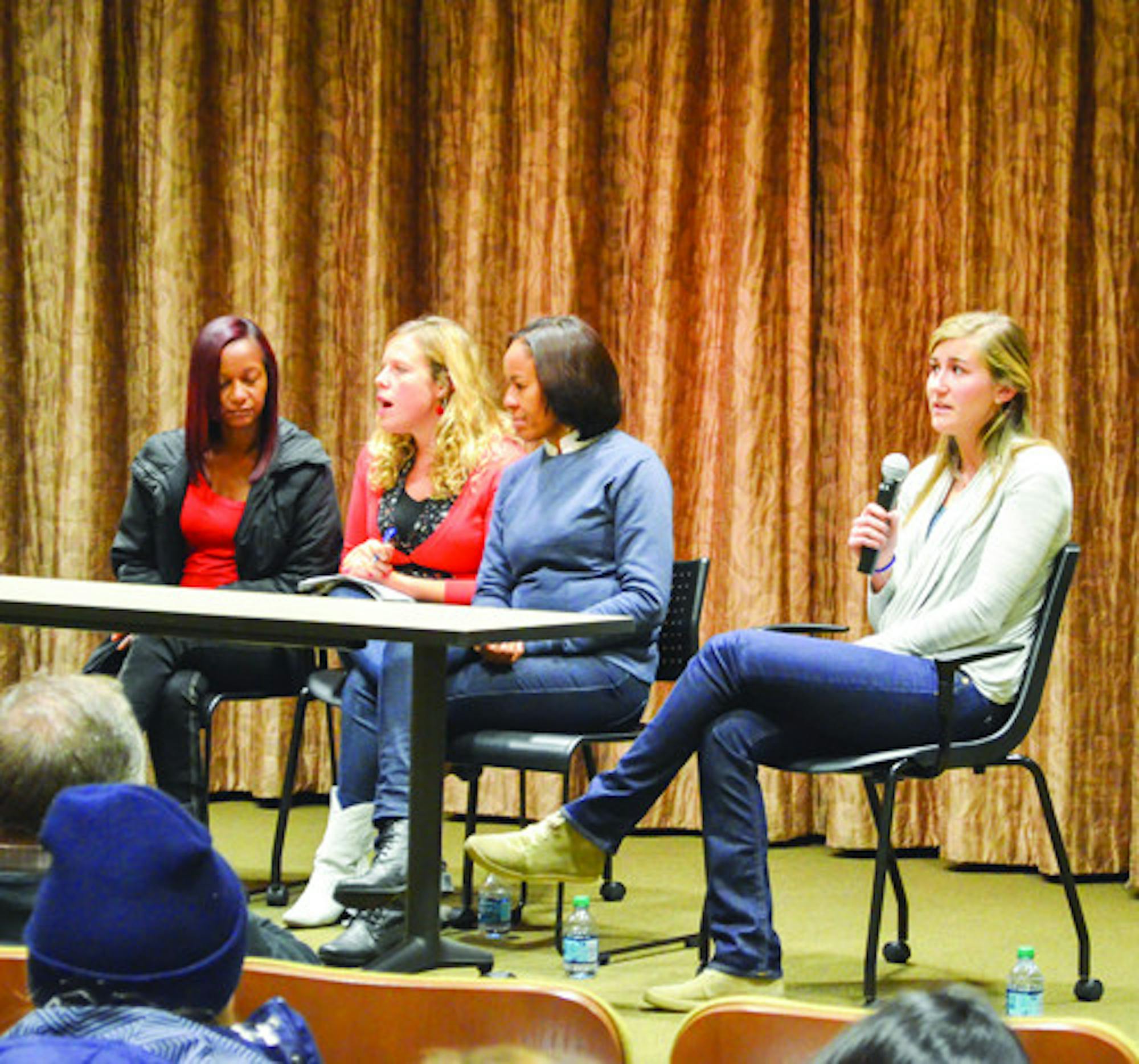For the last three years, The Shirt Project has contracted with Alta Gracia Apparel, a fair trade clothing factory located in the Altagracia province of Dominican Republic, to produce The Shirt. In an event sponsored by the Center for Social Concerns and the Higgins Labor Studies Program, two women who work at the factory in the Dominican Republic, a member of the Alta Gracia educational staff and a member of The Shirt committee sat down for a panel on the garment company and its work with Notre Dame.

Mary O'Neil | The Observer
Howell said The Shirt committee’s partnership with Alta Gracia has been a largely positive experience.
“They came to us in 2012 and really impressed us," Howell said. "… It’s been a great collaboration. They do so much for the people in the Dominican Republic, and the social aspect of that really stood out to us.
"They’ve been incredibly accommodating in terms of design, and they allowed us to change the fabric this year. In addition to being this amazing company that does so much good for the people in the Dominican Republic, they also have a really solid business model."
Rachel Taber, community education coordinator for Alta Gracia, spoke about the company and served as translator for the two women visiting from the Alta Gracia factory.
“Alta Gracia is the first-ever, living-wage college apparel project," Taber said. "Sometimes people think of a living wage as a family wage because it is enough to support a family of five.
"It is more than three times what your average Dominican garment worker would be making otherwise. This has a really profound impact on this community, as many people in this room have been able to see themselves."
The factory’s policies have greatly impacted the community, Taber said. The higher wages provided by the company allow for workers to engage in opportunities that would otherwise be impossible.
“Kids are going to school where they weren’t able to before for lack of resources like school supplies," she said. "The children of garment workers are now enrolled in college, pursuing their dreams, and even the workers themselves [can pursue an education]. People have access to medical care; people have become entrepreneurs in their own hometowns … actually employing other people in their community. It’s such a powerful ripple effect.”
Yenny Perez, a single mother of five children, is a worker at the Alta Gracia factory. She spoke about her experience with the company as Taber translated from Spanish.
“Since I have started working at Alta Gracia, my life has made a 180," Perez said. "We have the saying in Spanish that it is the difference between heaven and earth. I have been able to do things at home and take time to do things with my children.
"Before I worked at Alta Gracia, even sending all of them to school was a huge challenge. I had to pick which one of them would get to go. Now, all of my children are enrolled in school; my two oldest daughters are enrolled in the university. This hasn’t just been a big change for me; it has been a big change for all the workers and also for our local economy in Altagracia.”
Maritza Vargas, a 49-year-old factory worker with five children and one grandchild, talked about specific policies at the factory that have improved the working conditions, particularly for women.
“At Alta Gracia, we as women feel like we’re on a whole new level," Vargas said, with Taber translating. "As women, we are treated well and respected. Our right to be a mother is respected.
"At Alta Gracia our right to be a mother is fully respected and accommodated on the job. When it’s time to give birth, they are given full pregnancy leave, and postpartum, they are also given rights to tend to their babies properly.
"Some of the benefits that mothers enjoy are that they are allowed half a day out of the schedule to bring their child to the doctor or to any checkups that they could possibly need. They are also given one hour each day to go home and breast feed their child, to make sure it gets proper nutrition. They are also given time and the support of a childcare center that they can take their child to.”
Vargas said that the Alta Gracia factory represents a model of garment production that allows for human dignity but also profit.
“It’s a great pride to work at Alta Gracia," Vargas said. "We’re showing the world together that this can be done. You can have a factory where people are treated like humans, with respect, like equals. You can have a factory where people are paid a dignified wage and this is something that can be done all over."













